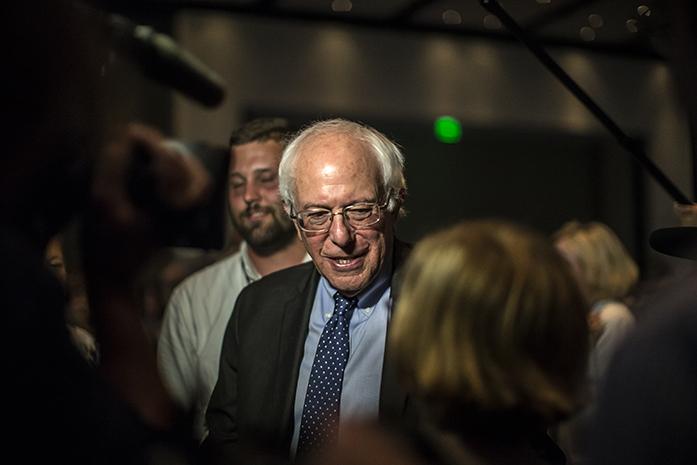Jacob Prall
[email protected]
Bernie Sanders and Donald Trump are the two biggest populist candidates of the 2016 election. Their success so far can be contributed to similar issues in government policies,
though the remedies they propose are far from comparable. Trump’s chest thumping, “the power of my will can solve any problem” style is appealing to many. The only real “concrete” reform proposed by Trump is an altercation to the 14th Amendment guaranteeing citizenship to those born in the United States. But his ego is so powerful, and has such an effect on the other republican candidates that even candidate Bobby Jindal, a benefactor of the 14th Amendment himself, no longer supports it.
Sanders, by comparison, is a longtime independent who believes in the capacity of the political process for change. His calls for the breaking up of “too-big-to-fail” banks and affordable college education are far from fringe. Both candidates have campaign money largely untouched by major political institutions, and they’re both riding a tide of anxiety that many in the United States are experiencing. Not surprising, after the economic crisis of 2008. Trump is channeling ethnic animosity between white workers and immigrants to fuel his campaign. Sanders is channeling the frustration and fear that the middle class is being destroyed by the wealthiest in society.
When Trump realized the potential to galvanize an increasingly sizable portion of the white vote that fears the “American way” is changing, he tapped into a vast reserve of fear. His opinions on immigration last election cycle were far tamer, and he had eloquent criticism of Mitt Romney’s immigration policy. Politicians have been doing this with every wave of immigrant: Germans, Catholics, Italians, Irish, Jews, Poles, and the like were all targeted as the source of America’s dissolution. Later, it was the Chinese and so on. Blaming economic strife and social upheaval on the lower classes, performing mostly manual labor for a net profit in the U.S. economy, is a storied tradition.
When the perceived “backbone” of an economy, say the middle class, believes its place economically and socially is threatened, they may turn their attention to the ones who influence policy and created the failing structures in the first place. Here is one of Sanders’ strongest bases.
Sanders’ grass-root fans love his honesty, consistency and pro-labor message. They see him as a protector of the ideals of economic mobility and social equality in the United States. Trump’s supporters are fearful that their perceived notion of the “American way” is quickly eroding, though it translates closer to the erosion of privilege white Americans maintain. For the time, Trump’s success doesn’t seem to be riling the democrats all that much. In fact, his larger-than-life attitude and radical positions on immigration might benefit the left.
Tim Hagle, a UI associate professor of political science, put it this way. “Trump isn’t exactly polarizing, so far, but certainly generates a lot of interest, particularly from the media. Many mainstream Republicans seem unsure of what to make of Trump’s continued high poll numbers and Democrats seem content for the moment to let it play out. They probably hope Trump wins because they will have plenty to attack him on later.”
The independent vote will play a key role in the nomination of either of these men. Sanders has a history of being an independent, an outsider on the inside. Trump has a personality that, for now, is gripping — and his media coverage is nonstop.
Whether either of these candidates makes it to the election is, at this moment, less important than what their popularity with voters signifies. They represent the fears and resentment people have toward their government, and their success will continue to warp the stances of all other candidates on their side of the party lines.



